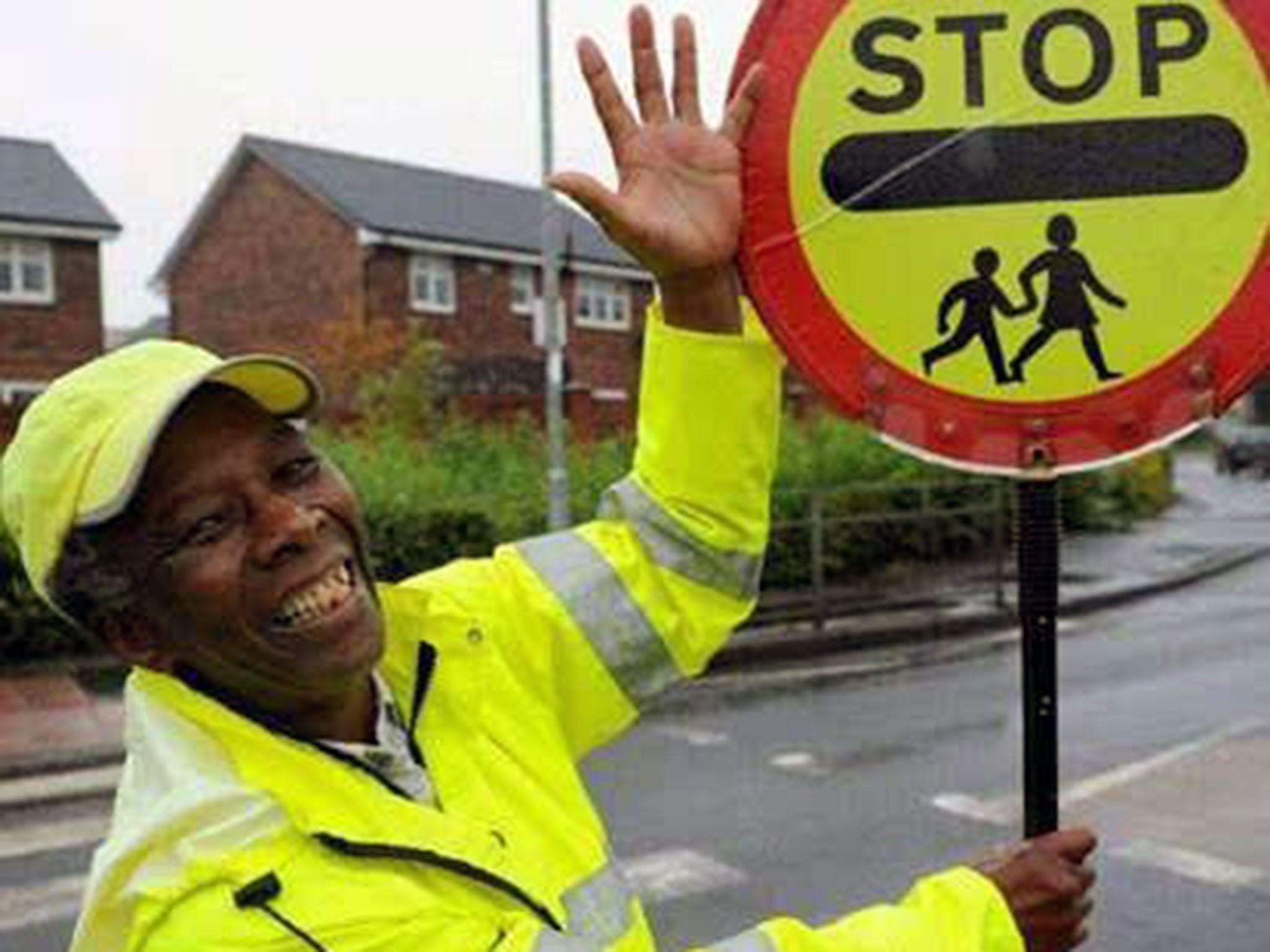'Scotland's happiest lollipop man': Campaign launched after Nkosana Mdikane banned from high-fiving children at crossings
Supporters say Mr Mdikane keeps their children safe regardless of the gesture

Thousands of people have signed a petition calling on a council to end a ban stopping "Scotland’s happiest lollipop man" from high-fiving schoolchildren.
Nkosana Mdikane, 74, who works outside Aitkenbar and St Peter's primary schools in West Dunbartonshire, has reportedly been told to stop greeting children in this way as he helps them cross the road.
West Dunbartonshire Council is believed to have made the decision for safety reasons.
Mr Mdikane’s supporters have launched a campaign entitled "Reverse the decision to allow our Lollipop man to give high fives!", with over 5,000 people signing a Change.Org petition in just one day.
The lead petitioner, whose was named by BBC News as David Dufton, writes on Change.Org: “The kids are so disappointed with this decision [to stop Mr Mdikane’s high-fives]. He encourages our kids to cross with him[…] The traffic always stops.”
He told BBC Scotland that Mr Mdikane keeps children safe because they prefer to cross with him as they want to see him.
The website added that Mr Mdikane’s was featured in Scottish press in 2013 when he was described as the nation’s happiest lollipop man.
Mr Mdikane told the BBC that he is baffled by the council's new rule.
"When I ask them what is the wrong that I did, they say 'you are not concentrating on the traffic'," adding that he has stopped using the gesture.
In a statement, West Dunbartonshire Council said: "All our patrollers are trained to comply with the school crossing guidelines produced by Road Safety GB and the Royal Society for the Prevention of Accidents.
"This requires that when crossing children over a road they need to remain static with one hand on their stick and the other stretched outwards.
"This ensures that they can be seen and effectively provide a visible barrier between school pupils and the traffic. Their main role is one of road safety. This national guidance has been effective since 2012."
Additional reporting by PA
Subscribe to Independent Premium to bookmark this article
Want to bookmark your favourite articles and stories to read or reference later? Start your Independent Premium subscription today.

Join our commenting forum
Join thought-provoking conversations, follow other Independent readers and see their replies